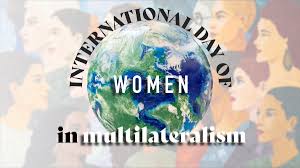Kuwait climbs three spots in global emerging markets rankings
The country is entering a new phase as the government engages the private sector in major development projects, adeptly navigating economic challenges with a forward-looking vision to boost competitiveness and improve the business environment.

• Kuwait advances to three spots in domestic logistics services and business pillars, thanks to its increased adoption of the public-private partnership model to support Kuwait Vision 2035, according to “Agility Emerging Markets Logistics Index” for 2025.
Kuwait advances to three spots in domestic logistics services and business pillars, thanks to its increased adoption of the public-private partnership (PPP) model to support Kuwait Vision 2035. This is according to the “Agility Emerging Markets Logistics Index” for 2025, which ranks emerging economies and surveys logistics industry experts.
The report highlights that the Gulf region has become a “model of resilience” and a “gateway to the world” for major Asian exporters and other trading nations, as reported by Al Qabas newspaper.
“It is clear that Kuwait is entering a new phase, highlighted by the government’s ability to engage the private sector in its massive development projects. The Kuwaiti government has cleverly managed difficult economic challenges with a forward-looking vision, which has helped enhance the country’s competitiveness and improve the business environment,” said Agility Vice Chairman Tarek Sultan.
Logistics sector faces cautious outlook as companies restructure for resilience
The index, now in its 16th year, reflects a cautious outlook for the logistics sector heading into 2025. According to a survey of 567 senior executives, more than 62% confirmed that they have restructured their supply chains to protect their businesses from inflation, potential tariffs, the possibility of a global economic recession, and other major risks.
Nearly 55% of survey respondents believe a global recession is likely or certain, 82% feel that tariffs and other forms of trade protectionism significantly impact their supply chains, and 72% say emerging market risks have increased over the past year.
Overall competitiveness
The Agility Emerging Markets Logistics Index ranks the world’s top 50 emerging markets in terms of overall competitiveness, based on their domestic and international logistics capabilities, business environment, and digital readiness—factors that make these markets attractive to logistics providers, freight forwarders, air and ocean carriers, distributors, and investors.
Global business hubs
The 2025 Index also includes an in-depth analysis of the GCC economies, as the six countries, both individually and collectively, work to establish themselves as global business hubs through extensive investments in infrastructure, artificial intelligence, energy transformation, and workforce development.
The index notes that economic challenges and attacks on the shipping sector in the Red Sea “have not derailed the development strategies of the GCC countries.” It adds that “access to the Gulf markets in the region is improving year after year, thanks to critical factors such as foreign ownership levels, ease of capital flows in and out, legal frameworks to protect investments, and financial clearance and settlement procedures. All of these factors ensure that these markets continue to attract foreign investors.”
Gulf countries topped the list in all categories
According to the index, the Gulf countries topped the list in all categories, with all six countries ranking among the top eleven in terms of business environment. In terms of digital readiness, the list includes China, the United Arab Emirates (UAE), Malaysia, Qatar, and Saudi Arabia as the most digitally prepared countries.
While the top 50 countries in the index remained stable, there were fluctuations and changes at the bottom, with China, India, the UAE, Saudi Arabia, Malaysia, Indonesia, Mexico, Qatar, Thailand, and Vietnam makeup the top 10. Colombia jumped to 21st, while Nigeria fell to 43rd, Bangladesh to 39th, and Ukraine to 40th in the ranking.
In the international logistics opportunities category, China, India, Mexico, Indonesia, and Saudi Arabia topped the list, while in the local logistics sector, China, India, Indonesia, Saudi Arabia, and the UAE occupied the top positions.
Diversification strategies and investment
“Despite the global economic challenges and disruptions to shipping routes over the past year, the Gulf economies have proven highly resilient,” said John Manners-Bell, CEO of Transport Intelligence.
“Diversification strategies, investment in the transport sector, the transition to green energy, and major infrastructure projects have established a strong foundation for future growth. Improved security in the region will further accelerate its role as a link between emerging powers and the West,” added John.
It is worth noting that Transport Intelligence (TI), a leading company in logistics analysis and research, has been compiling the index since its launch in 2009.
Highlights of the Index for 2025
- Economic recession: About 55% of survey respondents see a global recession as likely or certain.
- Trade protectionism: Approximately 82% of respondents believe that tariffs and other trade protectionist policies significantly impact their supply chains.
- Emerging markets: About 72% of survey respondents believe that risks in emerging markets have increased over the past year.
- China: 54% of respondents plan to move production or sourcing outside of China in the next five years due to trade tensions between China and the US, rising labor costs, and tightening local regulations.
- Africa: Despite rising risks in emerging markets, 35% of survey respondents plan to increase their investments in Africa through 2025, compared to only 8% who plan to reduce them.
- Carbon neutrality: About 65% of companies say they are on track to achieve net-zero emissions targets.
Country rankings in the 2025 Index
Middle East and North Africa: UAE (3), Saudi Arabia (4), Qatar (8), Turkey (11), Oman (14), Bahrain (16), Jordan (17), Kuwait (18), Egypt (24), Morocco (26), Iran (32), Tunisia (36), Algeria (38), Lebanon (42), Libya (46).
Sub-Saharan Africa: South Africa (20), Kenya (22), Ghana (31), Tanzania (37), Uganda (41), Nigeria (43), Ethiopia (45), Angola (47), Mozambique (48).
Asia: China (1), India (2), Malaysia (5), Indonesia (6), Thailand (9), Vietnam (10), Philippines (23), Kazakhstan (25), Sri Lanka (27), Cambodia (30), Pakistan (33), Bangladesh (39), Myanmar (49).
Latin America: Mexico (7), Chile (11), Brazil (13), Uruguay (19), Colombia (21), Peru (28), Argentina (29), Ecuador (34), Paraguay (35), Bolivia (44), Venezuela (50).




























